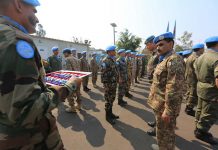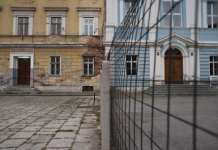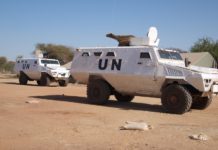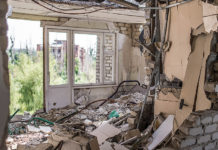Grotius.fr will be from here on Grotius International, with a new logo and the new feature, “The Geopolitics of Humanitarian aid”. I had explained the reasons for these changes in a previous edition, this can still be found in the section “Why this website?” But let’s get back to two aspects of the oncoming season which could prove problematic for humanitarian NGOs .
These last two months we have seen the emergency in Northeast Africa overshadow other humanitarian news and we have quickly forgotten the situations in Darfur, Haiti, the Democratic Republic of the Congo (DRC) and in Afghanistan. The media is drawn like a moth towards the bright lights of rockets and human suffering, lit in Somalia, Kenya and Ethiopia. From this dire situation which has endured for some months now, with deep structural roots and worsened in the interim by the Somali Shebabs (using hunger as a weapon is as old as warfare itself), they have made a desperate and brutal crisis. It sprang from nothing but now calls for a mobilization of cathartic connotation.
Whilst some NGOs have decided to jump on the Media bandwagon by adopting this simplistic view (in order to raise money from the general public or indeed from financial backers), none have risked explaining the more complex lessons of this crisis. This fact does not detract from their actions in the field but more relegates them to the category of simple private group as opposed to that of independent humanitarian aid organization (a product of civil society). Home to what is now the biggest refugee camp in the world, Kenya as a country plays a pivotal role in this crisis, as much due to its relative stability as compared to other countries in this zone, as due to the “hub” (logistical, financial, in human resources) that it represents.
Nevertheless, in addition to the main considerations that each humanitarian actor should think upon before intervening in a refugee camp (notably reading the excellent book of Michael Agier# – The Dabaad Camp currently holds more than 400,000 Somali refugees) we must not forget that this can quickly turn to a destabilizing factor of internal politics, in a country still nursing its wounds from the violence which sprang up at the end of December 2007 after the presidential elections, resulting in almost 1500 deaths. In short, the relationship of media and humanitarians only bears meaning if each part understands and respects the transience of the other and does not try, in a useless and potentially harmful effort, to change this. Journalists may talk of crisis with humanitarian consequence; this is their right. That they may make an indiscriminate “echo-logic” selection between these crises; is most likely error.
The other event which has shaped this summer remains the financial crisis which has shaken stock markets and states alike, most notably in Europe. The European and American debt, added to the continuing speculation in financial markets, will hit the budgets of these states head-on in the years to come. In France alone, almost 10 billion euros will have to be saved and, even beyond governmental forecasts, how could one fail to see that the current spending on humanitarian aid will be affected by budget cuts? This financial crisis impacts also at European level, it is most likely that the restructuring of ECHO, more and more integrated into the European Union External Action Service (EEAS), will become more pronounced, and that the “consortium method” already used in Pakistan, in Afghanistan or in Indonesia, will be extended to all European funded territories.
A certain number of British NGOs have formed, with support of the Department For International Development (DFID) a “Consortium of British NGOs”, pre-identified and pre-approved by authorities, whose objective is to aid and accelerate the implementation of programs in responses to crisis, as for example during the floods in Cox Bazar in Bangladesh July of this year. For French NGOs as for other European NGOs (especially those of medium size) who will not have anticipated these changes, and of which the majority are financed by ECHO, there will not be too many alternatives. Either they can embrace the “mould” of the consortium, and undoubtedly become service providers and private groups; the discernable result of a liberal and globalised economic logic. Or they refuse to participate in these consortiums, at the same time giving up their important status, therefore exposing themselves to the risk, in the short or medium term, of merger or of disappearing completely.
This is most likely just the start of the reshuffling and redistribution of roles in the humanitarian field, but the financial crisis and the pressure upon governments to reduce their debts marks the beginning of a precarious next step for humanitarian NGOs. Especially for those which aspire to defend the principles of humanitarian aid within and ethical and operational framework, but who no longer have the means, having been unable to prepare real financial diversification.
Traduction : Morgane Chatel
Jérôme Larché
Derniers articles parJérôme Larché (voir tous)
- Guerre au Mali : de l’information monochrome à la stupide rhétorique bushienne – 2 février 2013
- La chasse aux terroristes du Nord Mali : le nouvel Afghanistan français ? – 13 janvier 2013
- 2013, « the yearafter » : du catastrophisme à l’optimisme lucide – 1 janvier 2013







